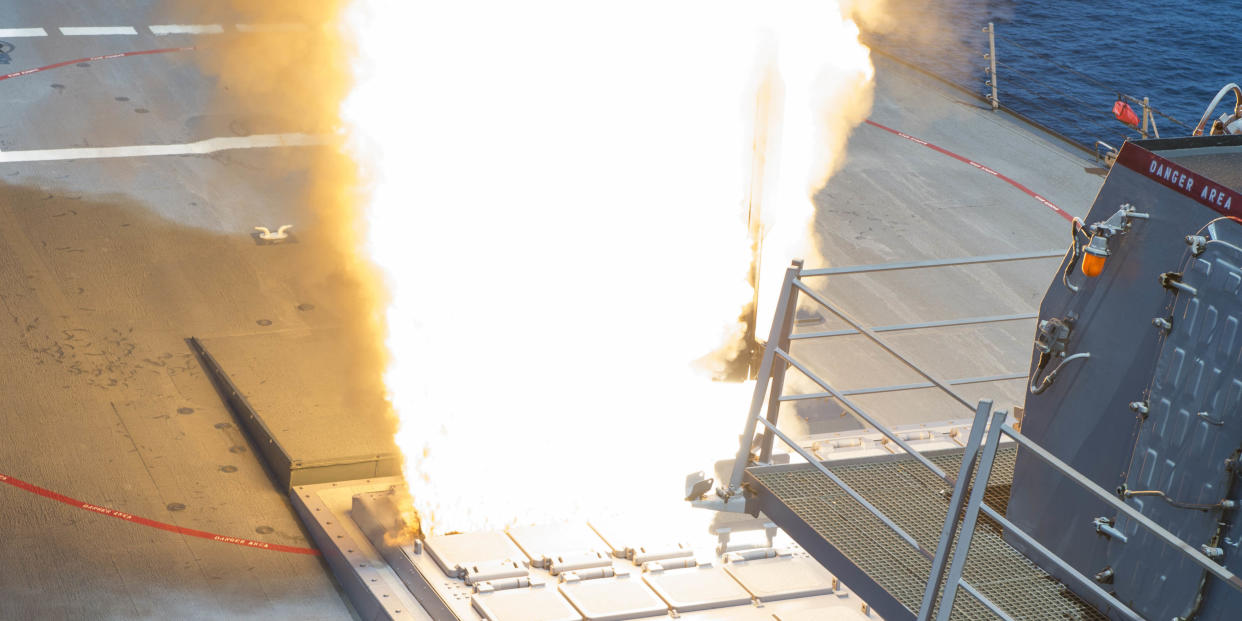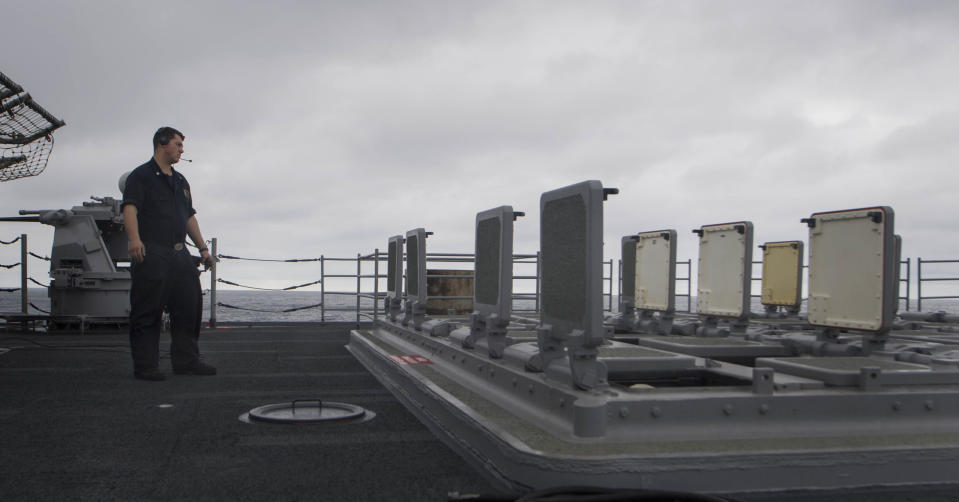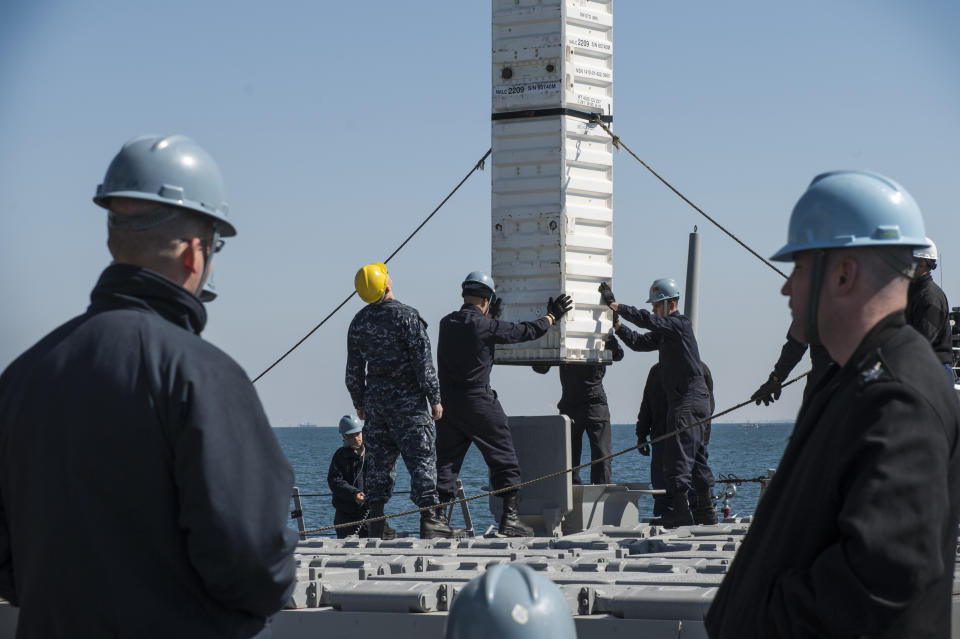The Navy Needs a Way to Reload Missile Silos at Sea

According to The National Interest, the U.S. Navy seeks a way to reload its vertical launch system silos at sea. The silos, which house ballistic missile interceptors, cruise missiles, and more, must currently be reloaded at port. But given the way the geopolitical situation is going, the Navy is picturing a scenario in which cruisers and destroyers might fire their entire complement of missiles...and have no port left to rearm them.
For decades, the Navy has used so-called "arm" launchers to fire guided missiles. Fed from a magazine below deck, "single arm" (one missile) or "twin arm" (two missile) launchers could rapidly fill the skies with surface-to-air missiles, as well as Harpoon anti-ship missiles and ASROC anti-submarine rocket-assisted torpedoes. The downside: If the complex arm and magazine loading system broke down or suffered battle damage, the ship lost a lot of firepower.

The introduction of the Mark 41 vertical launch system changed all of that. The Mark 41 traded arm launchers and magazines for a field of individual, single missile launchers contained in armored boxes that sat flush with the deck. With the Mark 41, a malfunction probably affected only a single missile. A Burke-class destroyer has as many as 96 Mark 41 silos.
One problem with Mark 41s is that they're not easy to reload at sea. As The National Interest explains, the Navy previously had the capability to load lighter missiles into the silos, but discarded it after the end of the Cold War. In the new, post-Cold War environment without a peer competitor naval power to challenge it, the Navy wasn't going to expend a large number of missiles in battle.

The rise of the China and Russia's newfound assertiveness have changed that. The Navy might someday be involved in major fleet actions in which large numbers of missiles are expended. Sending ships hundreds or even thousands of miles back to port just to rearm takes them out of action at a critical time. At the same time, bases where cruisers and destroyers typically go to rearm and refuel would become obvious targets in wartime and may be shut down by enemy action.
There is no easy solution here. Missiles in pre-packed canisters are heavy and delicate, and the transfer would need to be done during while both ships are at sea, or ideally in a nearby protected harbor or atoll. As TNI notes, one possible solution may be to equip ammunition ships traveling with the fleet with robotic arms that can pluck a missile canister out of the ship's hold and gingerly slide it into a surface warship.
Read more at The National Interest.
You Might Also Like

